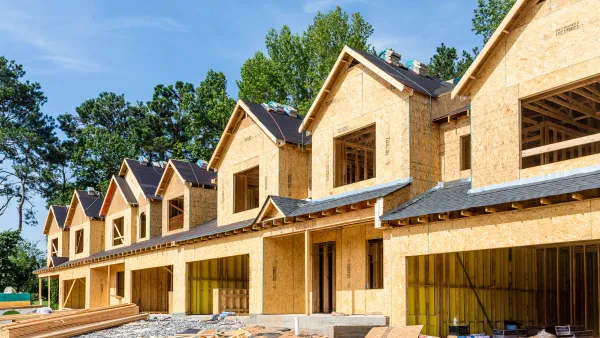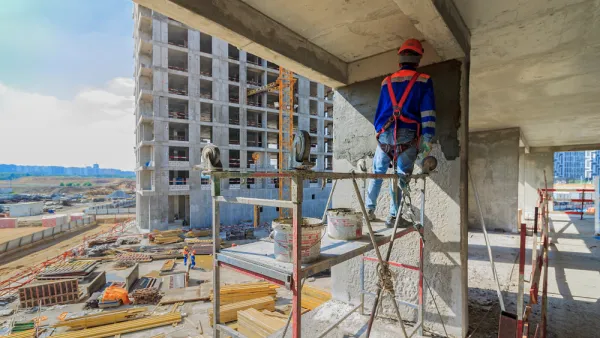The financialization of the housing sector is driving up costs for ordinary families and keeping available units off the market.

The growing impact of institutional investors on the housing market is driving up housing costs for most Americans, asserts a new report from the Institute for Policy Studies (IPS) and Popular Democracy, reinforcing a common belief that the financialization of housing is making it a commodity out of reach for many ordinary households.
According to a Common Dreams article by Julia Conley, “The two groups found that a small number of wealthy individuals and their investment arms, who control "huge pools of wealth," have spent some of their vast resources on "predatory investment and wealth-parking in luxury housing"—contributing significantly to the crises of unaffordable rents, out-of-reach homeownership, and homelessness.”
While the housing crisis is usually blamed on a supply and demand mismatch, “the reality is that the owners of concentrated wealth... are playing a more pronounced role in residential housing, thereby creating price inflation, distortions, and inefficiencies in the market.”
The report includes an example from Los Angeles, where in 2017 there were 93,500 vacant units and roughly 36,000 unhoused residents. Meanwhile, investors are encroaching on the affordable housing market, buying up multifamily properties and mobile home parks and raising costs for tenants. “Corporate ownership of rental housing stock ‘has not translated into housing stability, particularly for working-class households and communities of color,’ reads the report.”
The report urges policymakers to create more public and non-profit housing that can’t be sold at a profit, expand protections for affordable homes, and limit corporate ownership and vacancy periods.
FULL STORY: Billionaire Investors Are 'Supercharging' Housing Crisis: Report

National Parks Layoffs Will Cause Communities to Lose Billions
Thousands of essential park workers were laid off this week, just before the busy spring break season.

Retro-silient?: America’s First “Eco-burb,” The Woodlands Turns 50
A master-planned community north of Houston offers lessons on green infrastructure and resilient design, but falls short of its founder’s lofty affordability and walkability goals.

Delivering for America Plan Will Downgrade Mail Service in at Least 49.5 Percent of Zip Codes
Republican and Democrat lawmakers criticize the plan for its disproportionate negative impact on rural communities.

Test News Post 1
This is a summary

Test News Headline 46
Test for the image on the front page.

Balancing Bombs and Butterflies: How the National Guard Protects a Rare Species
The National Guard at Fort Indiantown Gap uses GIS technology and land management strategies to balance military training with conservation efforts, ensuring the survival of the rare eastern regal fritillary butterfly.
Urban Design for Planners 1: Software Tools
This six-course series explores essential urban design concepts using open source software and equips planners with the tools they need to participate fully in the urban design process.
Planning for Universal Design
Learn the tools for implementing Universal Design in planning regulations.
EMC Planning Group, Inc.
Planetizen
Planetizen
Mpact (formerly Rail~Volution)
Great Falls Development Authority, Inc.
HUDs Office of Policy Development and Research
NYU Wagner Graduate School of Public Service





























